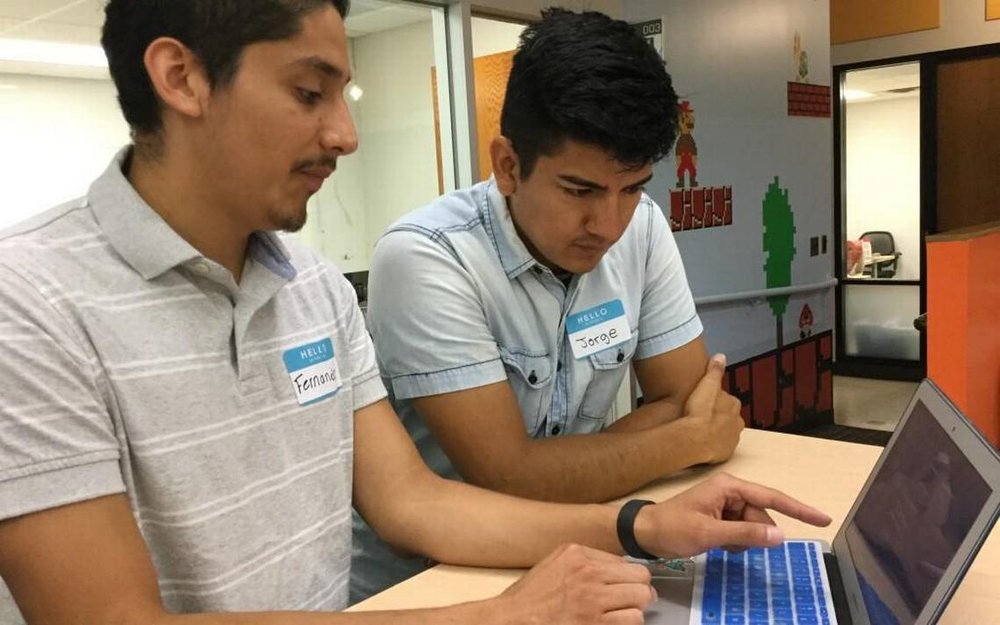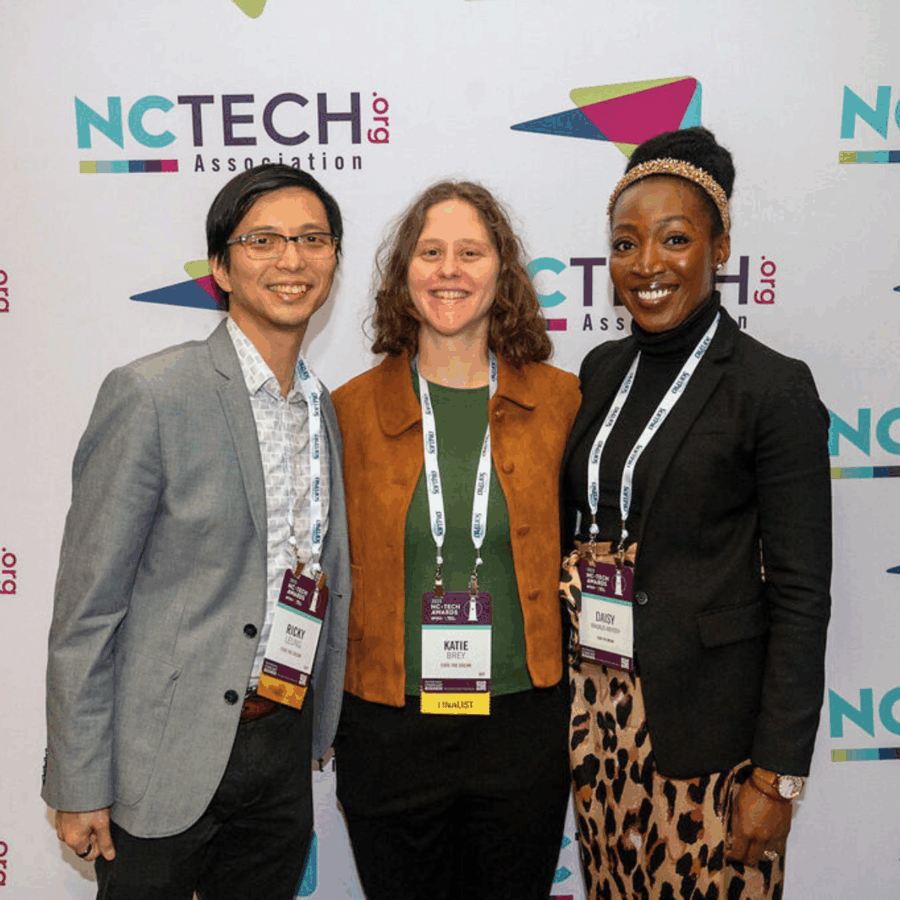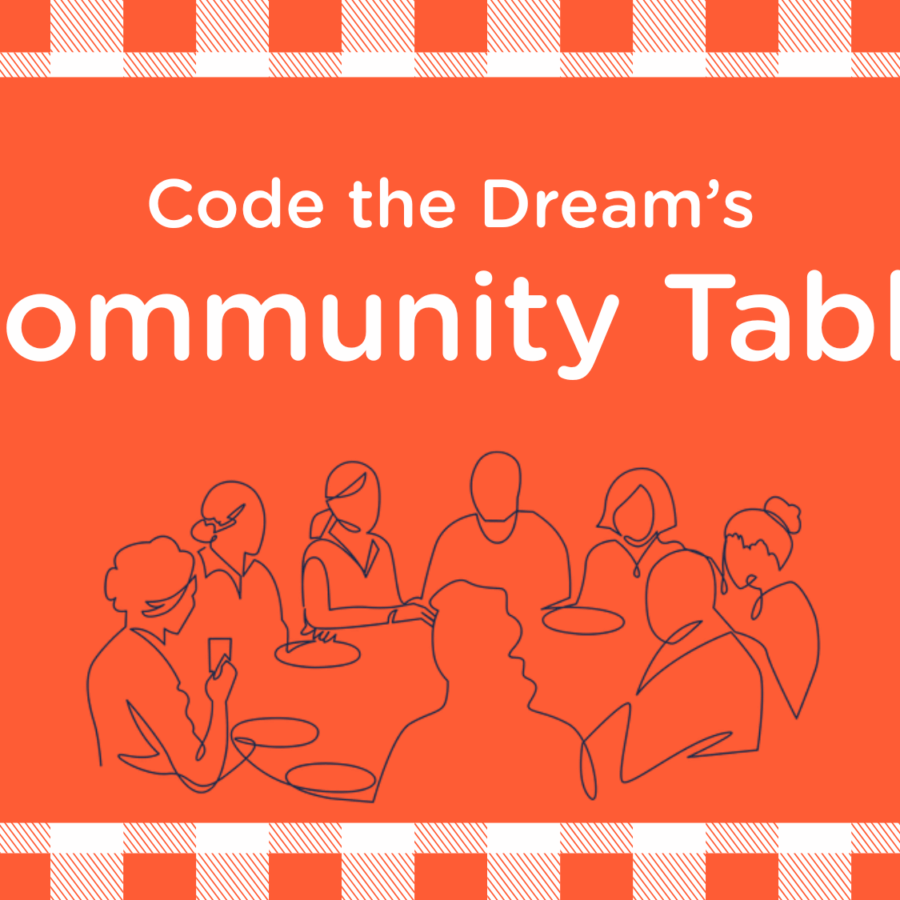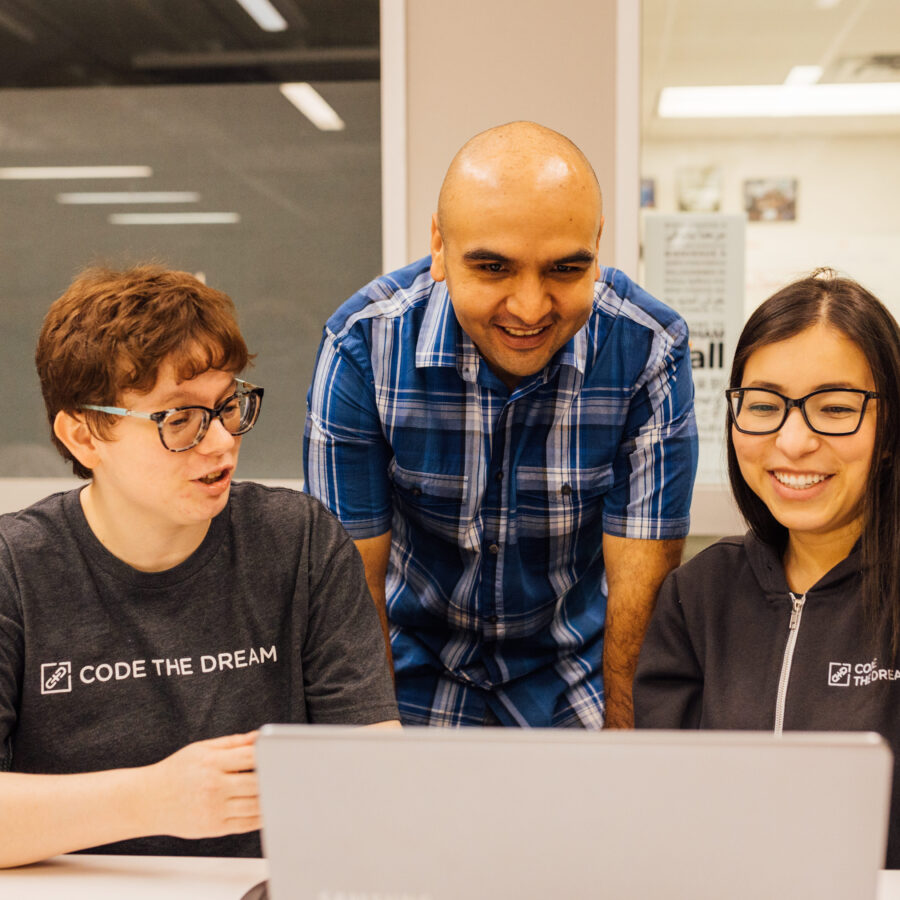
Originally published July 29, 2017 in the News & Observer.
Anne Blythe ablythe@newsobserver.com
With laptops open, rapt students watched as lines of code stretched across their screens. They were gathered in the American Underground, a startup incubator, to take part in classes organized through Code the Dream, a program set up to steer people from immigrant, refugee and minority communities into computer programming jobs and tech careers.
Cruz Nunez, a graduate of the program, did a presentation on an app he has been creating for a Raleigh businessman that has the potential to transform business management for private trash haulers across the country.
“I like coding because I like solving problems and I like making web pages look good,” Nunez told the new coders.
The classes are being offered through Uniting NC and the American Underground at a time when the tech industry is being criticized for its lack of diversity.
According to a 2014 report by the Equal Employment Opportunity Commission, black workers account for only 7 percent of the industry’s jobs, Hispanics hold about 8 percent, and women — nearly 47 percent of the overall workforce — make up only 36 percent of the high-tech workforce.
Ramiro Rodriguez, a Raleigh resident who came to the United States as a child from Mexico, is a founder and lead teacher at Code the Dream. Many immigrants and refugees who might lack the financial resources to pay for their education or support their families have benefited from his willingness to share his experiences and knowledge from working in the tech industry.
Cynthia Rios, a 16-year-old Garner High School student who became the youngest person accepted into program after applying at 14 years old, worked with Ruben Cruz, a 23-year-old Durham resident, to set up a computer site for the Kidznotes music program.
“I always wanted to find a way to program,” said Cruz, who was tipped off about the program while taking classes at Durham Technical Community College. “It’s really cool here. We have our mentors and we can talk to them about our ideas”
Daisy Howarth, a Ghanaian who came to the United States as a child, was a stay-at-home mom before she found Code the Dream. From those classes she received even more intensive training at the Iron Yard, a coding school that surprised many with its recent announcement that campuses in Raleigh and Durham were closing.
Howarth, though, has been able to turn her experience into a job at a university in the area, and she has helped others from Code the Dream climb the industry ladder with her.
Fernando Osorto, 22, who came to this country from Honduras 12 years ago, is one of those people and was applauded on Saturday for landing a job with Howarth.
Osorto did not immediately set out to be a coder. After high school, he worked for a year as a framer before deciding he wanted to try something different.
After taking Code the Dream classes, Osorto worked with Jorge Rodriguez, who always has had a love for technology, on a project for the Student Action with Farmworkers.
The idea was to create a portal to help farmworkers, who are often immigrant laborers, find services they need in North Carolina. The site, which offers guidance in Spanish and English, helps farmworkers and their families find health care close to them, education opportunities, legal and immigration assistance, government agencies, housing and job information.
The two also are thinking about other kinds of apps they might try to create.
Rodriguez said his friends were thrilled with a Pinterest-style clone he made in several weeks.
“Coding was a little scary for me at the beginning,” Rodriguez said. “I’ve always been involved in technology. But for me, coming from Spanish and learning English, it’s like I know English, and now I’ve got to learn another language. …Now I want to make apps that help the world, that help all people.”





